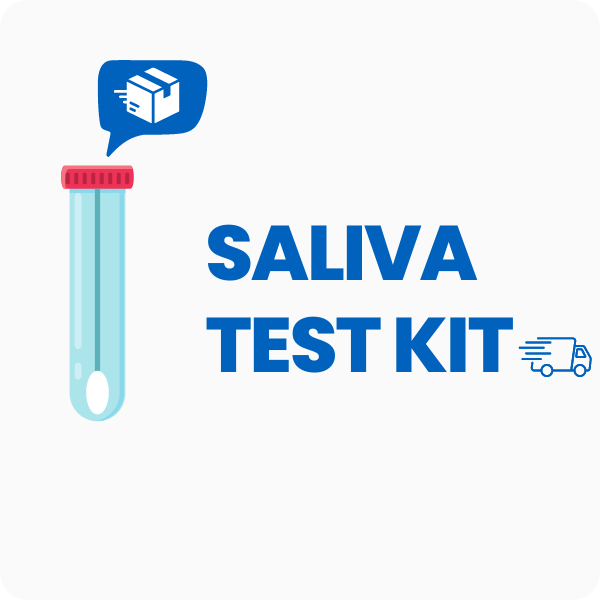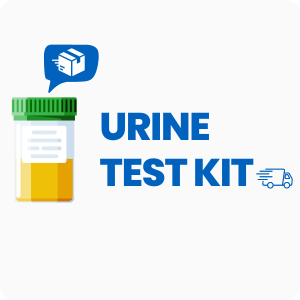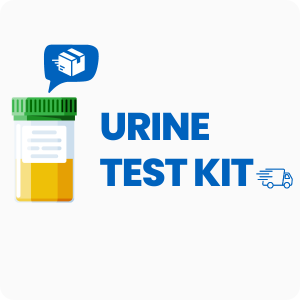Ordering the DetoxiGenomic Profile | Canada
The DetoxiGenomic Profile from Genova helps you learn how your genes affect the way your body removes toxins and handles certain medicines. This test looks at over 20 small changes in your DNA, called SNPs, that can change how your body deals with things like pollution, chemicals, and even some foods. Interestingly, some people may have gene changes that make them more sensitive to everyday chemicals, which can lead to symptoms like headaches, tiredness, or skin problems.
Ordering this test can help you:
- Find out if your genes make it harder for your body to clear out toxins.
- See if you might react more to certain medicines or foods.
- Learn if you need extra support for your liver or detox systems.
- Get clues about why you might feel tired, have brain fog, or get headaches.
- Make better choices about your diet and environment based on your DNA.
Who Should Consider Genetic Detoxification Testing
People who often feel tired, have trouble focusing, or get headaches after being around strong smells or chemicals may benefit from this test. For example, someone who feels sick or gets a rash after using cleaning products or eating certain foods could use this test to find out if their genes play a role.
Ordering this test may also be helpful if you:
- Notice mood swings or feel anxious after eating processed foods.
- Have a family history of slow metabolism or trouble with certain medicines.
- Struggle with skin issues that don’t improve with regular care.
- Experience joint or muscle pain that seems to get worse after being in polluted areas.
- Have trouble with memory or concentration that started after moving to a new home or job.
Testing for these gene changes can show if your body needs extra help to remove toxins, which can help you avoid things that make you feel worse. Waiting to order this test could mean missing the chance to make changes that may help you feel better sooner.
Preparing for Genetic Detoxification Analysis
No fasting is needed for this test, and you can eat and drink as usual before collecting your sample. Always follow any instructions your doctor or healthcare provider gives you to make sure your sample is collected the right way.
Labs Included When Ordering Your DetoxiGenomic Profile
| Test Name | Reference Range | What This Marker Means | Low and High Levels of DetoxiGenomic Profile |
|---|---|---|---|
| Phase I: Cytochrome P-450 Enzymes | |||
| CYP1A1 | 0-2 risk alleles | CYP1A1 helps break down toxins from smoke, pollution, and some foods. It is important for the first step in removing harmful substances. |
High levels mean your body may process toxins too quickly, which can create more harmful byproducts.
Low levels mean your body may be slower at removing toxins, leading to buildup. |
| CYP1B1 | 0-2 risk alleles | CYP1B1 helps process hormones and chemicals from the environment. It plays a role in how your body handles estrogen and toxins. |
High levels mean faster breakdown of hormones, which can affect balance.
Low levels mean slower removal of toxins and hormones. |
| CYP2A6 | 0-2 risk alleles | CYP2A6 helps break down nicotine and some medicines. It affects how your body reacts to smoke and certain drugs. |
High levels mean you may clear nicotine and drugs quickly.
Low levels mean slower processing, which can cause stronger effects from these substances. |
| CYP2D6 | 0-2 risk alleles | CYP2D6 is involved in breaking down many medicines and toxins. It affects how your body responds to pain relievers and antidepressants. |
High levels mean medicines may not work as well or wear off quickly.
Low levels mean medicines may stay in your body longer, increasing side effects. |
| CYP2E1 | 0-2 risk alleles | CYP2E1 helps break down alcohol, smoke, and some chemicals. It is important for handling toxins from the environment. |
High levels mean more byproducts that can stress the liver.
Low levels mean slower removal of alcohol and chemicals. |
| CYP2C9 | 0-2 risk alleles | CYP2C9 helps process medicines like blood thinners and anti-inflammatory drugs. It affects how your body handles these medicines. |
High levels mean medicines may be cleared too fast, reducing their effect.
Low levels mean medicines may build up, increasing risk of side effects. |
| CYP1C19 | 0-2 risk alleles | CYP1C19 is important for breaking down certain stomach and heart medicines. It helps your body process these drugs safely. |
High levels mean medicines may not work as expected.
Low levels mean higher risk of side effects from these medicines. |
| CYP3A4 | 0-2 risk alleles | CYP3A4 helps break down many medicines and toxins. It is one of the main enzymes for removing drugs from your body. |
High levels mean medicines may be less effective.
Low levels mean medicines and toxins may stay in your body longer. |
| Phase II: Conjugation and Elimination | |||
| COMT (Methylation) | 0-2 risk alleles | COMT helps your body process stress hormones and toxins. It is important for mood, focus, and removing harmful substances. |
High levels mean stress hormones are cleared quickly, which can affect mood.
Low levels mean stress hormones and toxins may build up, causing symptoms. |
| NAT1 (Acetylation) | 0-2 risk alleles | NAT1 helps remove toxins from smoke, food, and the environment. It is important for clearing out certain chemicals. |
High levels mean faster removal of some toxins.
Low levels mean slower detox, which can lead to buildup. |
| NAT2 (Acetylation) | 0-2 risk alleles | NAT2 helps your body get rid of chemicals from food and the environment. It affects how quickly you clear out certain toxins. |
High levels mean you may clear toxins quickly.
Low levels mean toxins may stay in your body longer. |
| GSTM1 (Glutathione Conjugation) | Present/Null | GSTM1 helps your body use glutathione, a key antioxidant, to remove toxins. It is important for protecting your cells from damage. |
High levels mean strong protection against toxins.
Low levels mean less ability to remove toxins, raising risk of cell damage. |
| GSTP1 (Glutathione Conjugation) | 0-2 risk alleles | GSTP1 helps your body use glutathione to clear out harmful chemicals. It is important for detox and cell protection. |
High levels mean better removal of toxins.
Low levels mean higher risk of toxin buildup and cell stress. |
| Oxidative Protection | |||
| SOD1 (Superoxide Dismutase) | 0-2 risk alleles | SOD1 helps protect your cells from damage by breaking down harmful molecules called free radicals. It is important for keeping your cells healthy. |
High levels mean strong defense against cell damage.
Low levels mean higher risk of cell stress and damage from toxins. |
| SOD2 (Superoxide Dismutase) | 0-2 risk alleles | SOD2 also helps break down free radicals inside your cells. It is important for protecting your body from stress and toxins. |
High levels mean better protection from cell damage.
Low levels mean more risk of damage from toxins and stress. |
Reference ranges may change slightly as labs update their methods and guidelines.
DetoxiGenomic Profile FAQ
Is there DetoxiGenomic Profile testing near me?
This is a test kit you can use at home, and you can check the draw location link at the top of the page for local collection options. If you often feel tired or have trouble with certain foods or chemicals, having a nearby collection site makes it easier to get tested without extra travel or stress.
How do I interpret the test results?
While your treating physician should review your results, we also offer a one-on-one test results review with our clinical team to help you understand what your results mean for your detox pathways and next steps.
What is the cost of the test?
The price you see for this test includes standard shipping to you and back to the lab, but draw fees may apply. Ordering this test is worth it if you want to find out if your genes are making it harder for your body to clear out toxins, which can help you feel better faster.
How often should I retest?
Retesting is usually only needed if you make big changes to your diet, environment, or medicine, since your genes do not change over time. Reordering can be helpful if you want to see how new habits or exposures may affect your symptoms or if your doctor recommends it.
How accurate is the test?
This test uses advanced DNA analysis with polymerase chain reaction (PCR) to check for specific gene changes, with a specificity of 99.9% and sensitivity of 99.8%. TrueHealthLabs.com partners with CLIA-certified and CAP-certified laboratories to uphold rigorous testing standards for dependable results.
Important Notes
- You will be responsible for the shipping costs to and from Canada.
Medical Review Board
Reviewed by Jeff Donohue M.D. from Body Logic and Brady Hurst DC, CCCN. Written by True Health Lab’s team of editorial health contributors.
Disclaimer: This information is for educational purposes only and not intended as medical advice. Consult your healthcare provider for personalized guidance.
Why Customers Trust True Health Labs – What People are saying
Also rated 4.6 out of 5 based on 3452 ShopperApproved reviews- See all TrueHealthLabs.com reviews.








